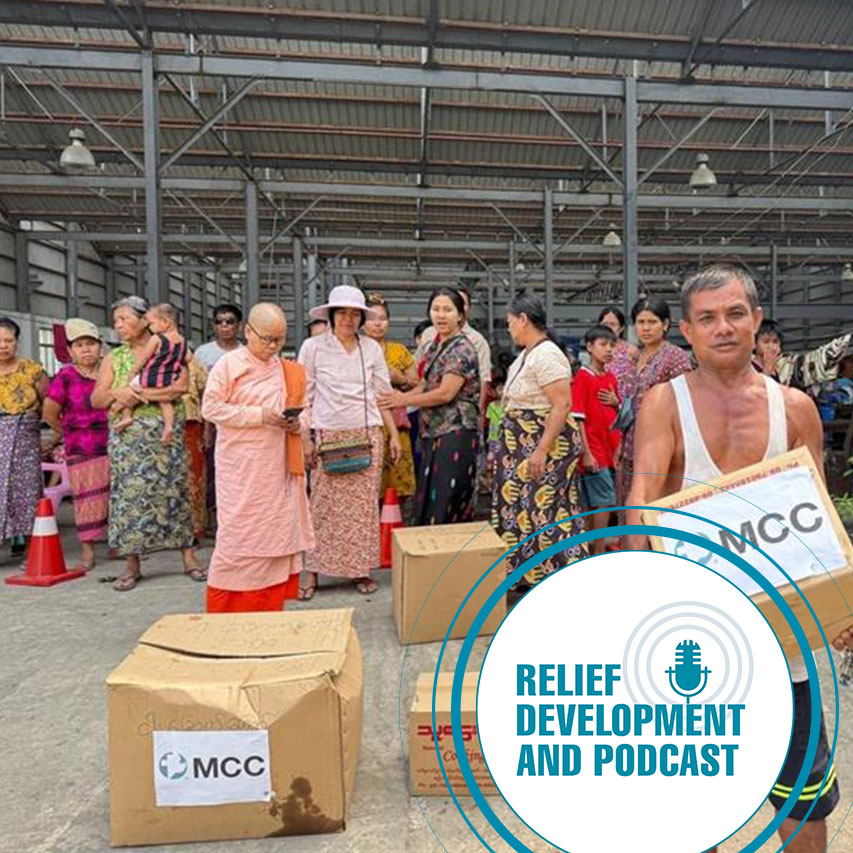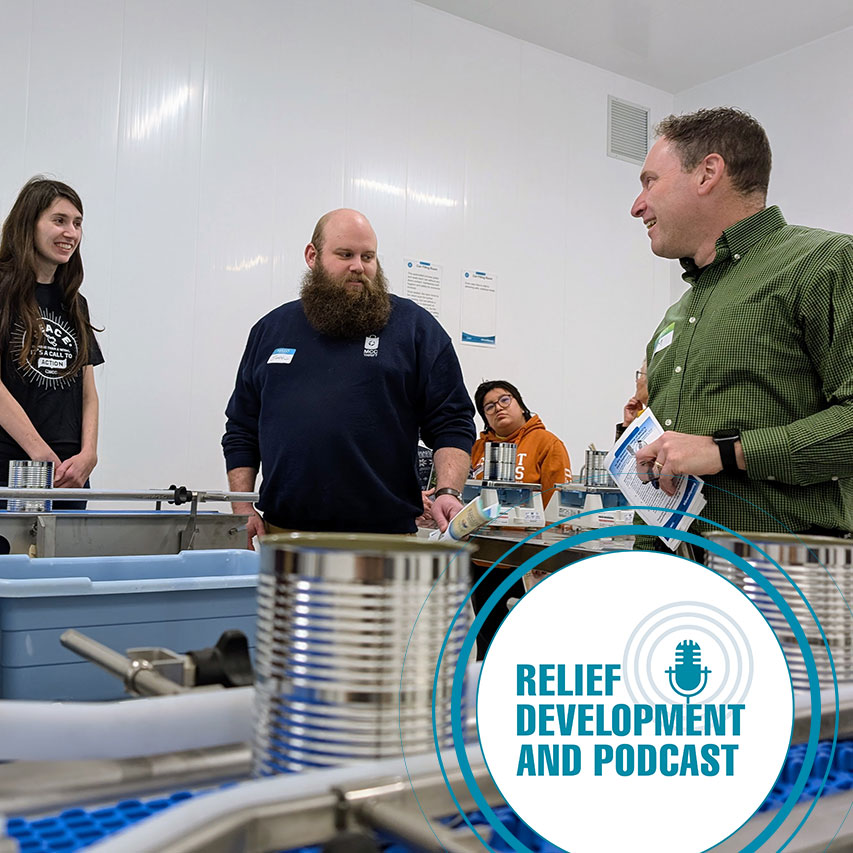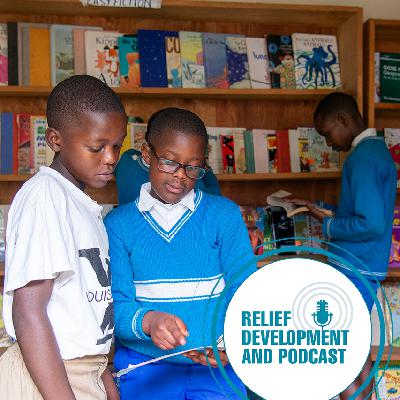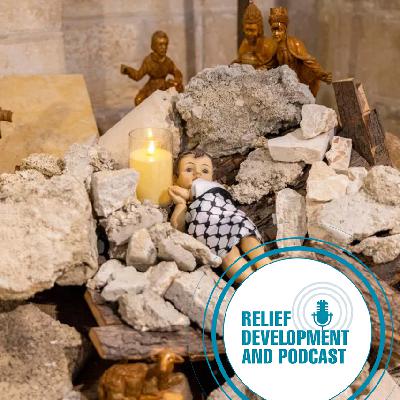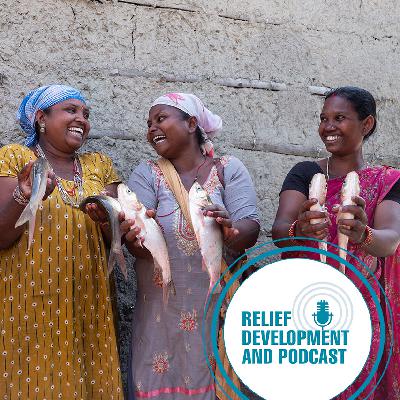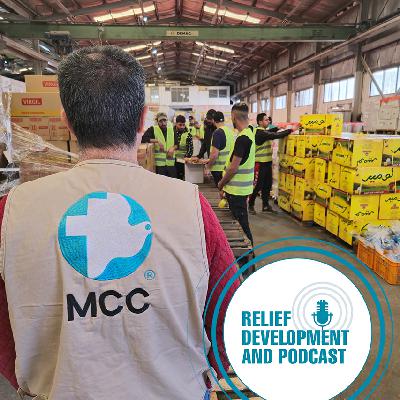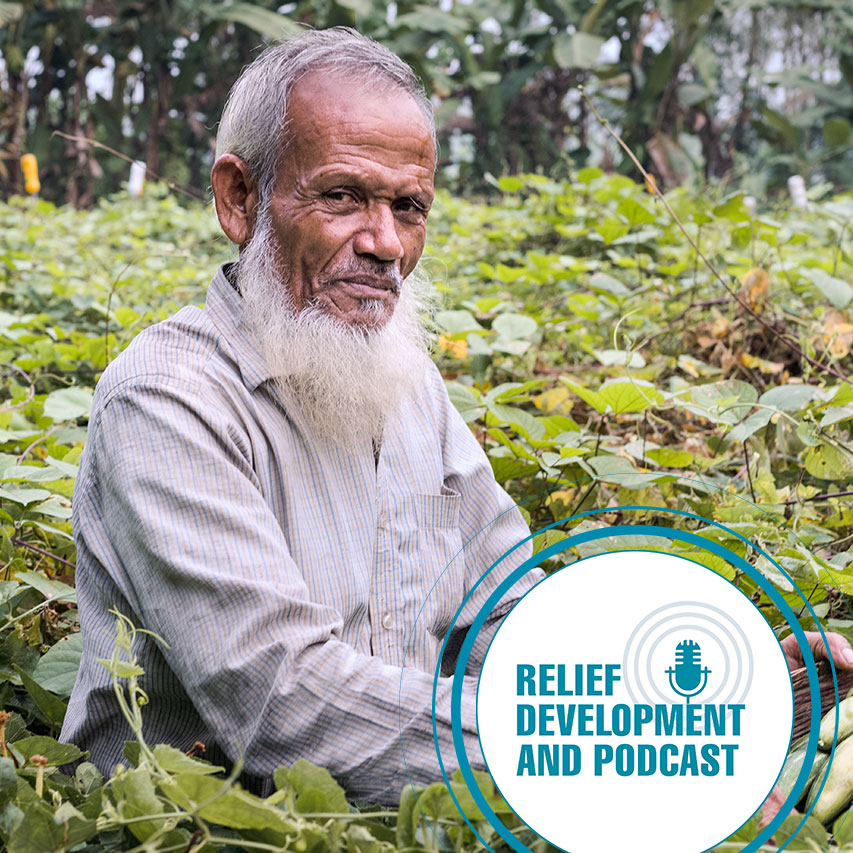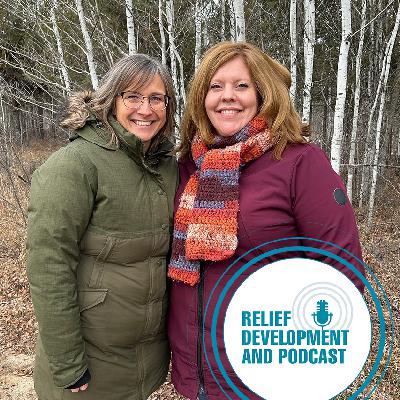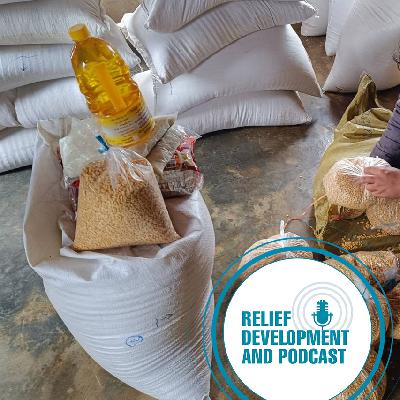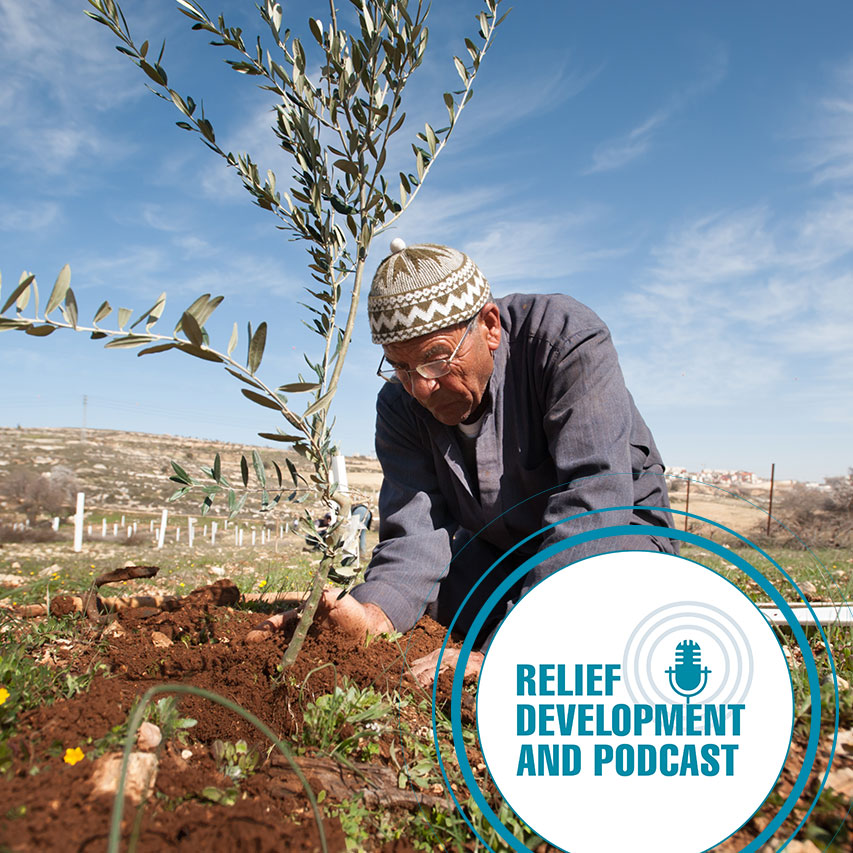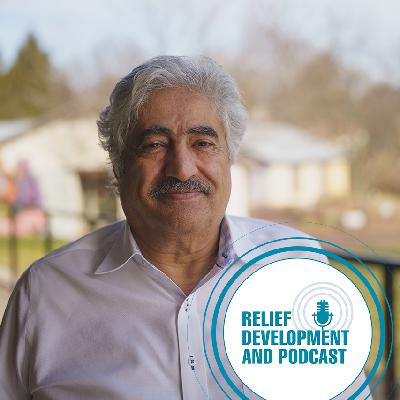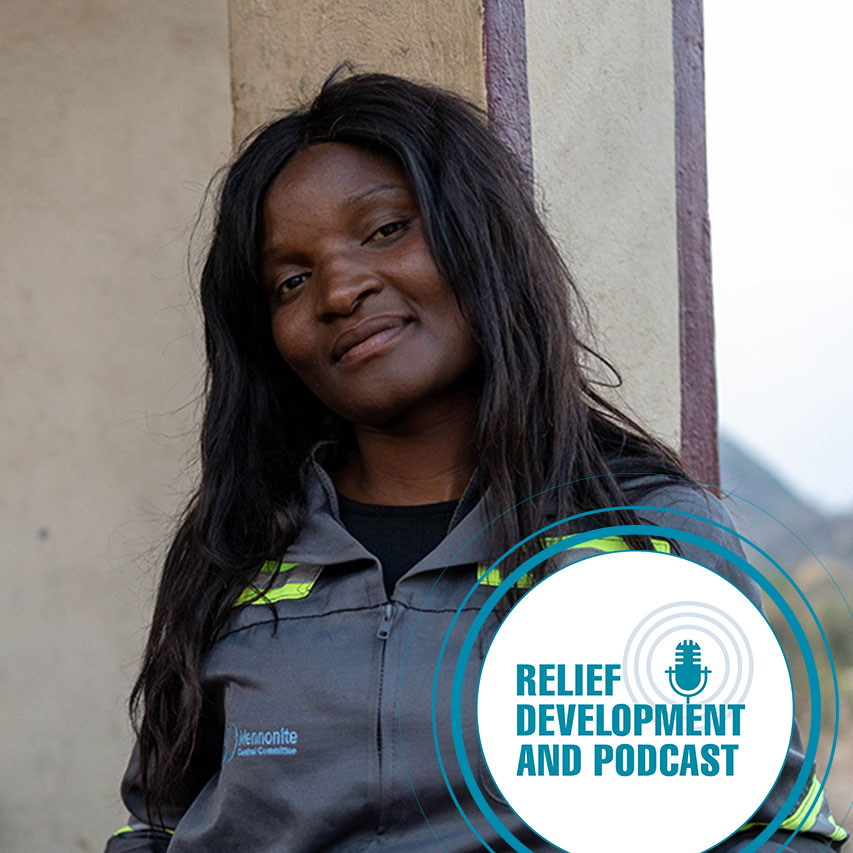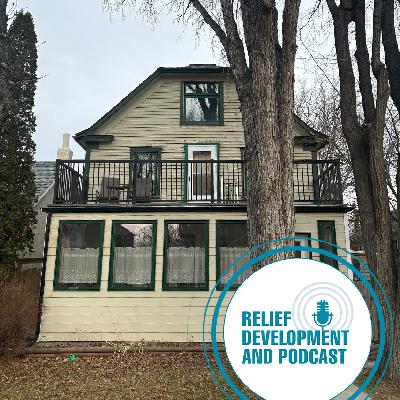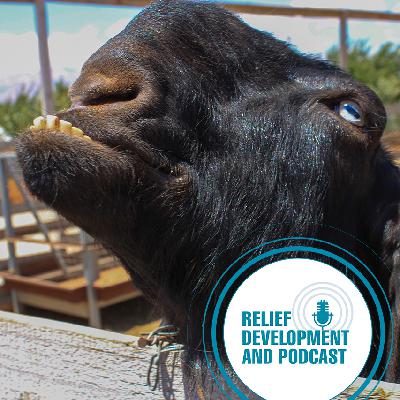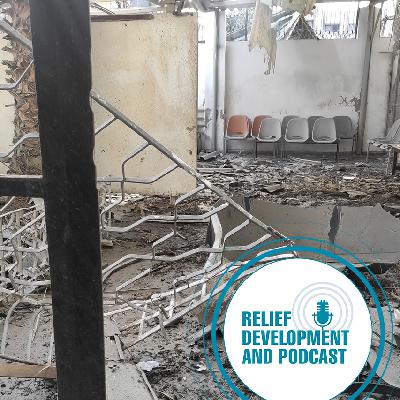Discover Relief, development and podcast
Relief, development and podcast

Relief, development and podcast
Author: Mennonite Central Committee
Subscribed: 16Played: 259Subscribe
Share
Description
Relief, Development and Podcast, is a podcast from Mennonite Central Committee. This show is about connecting with the realities faced by displaced and people made vulnerable around the world.
Episodes feature special guests, stories from the field and updates about people and programs making an impact all around the world. Together we'll hear stories about relief, development and peace, and how your support for MCC helps to meet basic human needs and work for peace and justice.
Episodes feature special guests, stories from the field and updates about people and programs making an impact all around the world. Together we'll hear stories about relief, development and peace, and how your support for MCC helps to meet basic human needs and work for peace and justice.
66 Episodes
Reverse
In this episode, we check in with our partners in Myanmar after the 7.7 magnitude earthquake at the end of March. Join us as we speak with MCC partners on the ground and rep Crystal Conlin. MCC partners share firsthand accounts of the destruction, the immediate relief efforts, and the ongoing challenges faced by the communities. Tune in to hear powerful stories of survival, solidarity, and the unwavering commitment to helping those in need. Donate to MCC earthquake response: https://mcc.org/myanmar Transcript
Join us on a fascinating journey as we explore the story behind MCC's first-ever stationary meat cannery in Ontario. Hosted by Ken Ogasawara, this episode delves into the history, challenges, and triumphs of the Mennonite Central Committee's meat canning operations. From the early days of the mobile meat canner to the grand opening of the new 10,000 square foot facility, discover how this initiative has brought together thousands of volunteers and provided essential relief to communities around the world. Tune in and be inspired by the power of collective action and the motto, "Together we can." Apply to be a mobile meat canner opperator: https://mcc.org/canner-operator Transcript
This episode features a visit to the Gicumbia Children's Peace Library in Rwanda. The library fosters a culture of peace and reading among children, in response to the lingering legacy of the 1994 Rwandan genocide of the Tutsis. Full transcript and show notes here.
It's 2025. And we're looking back on last year. In this episode, hosts Christy Kauffman and Meghan Mast share some favorite moments from the podcast and talk about why these clips impacted them. Meghan also shares an announcement. Full transcript available here.
This episode features a conversation between Reverend Munther Isaac and his former student Anthony Khair. The two Christian Palestinian men talk about how they are navigating grief and the immense loss in Gaza, while cultivating courage and resilience. Their conversation covers challenging truths and talks about the importance of language in this moment. Full transcript and show notes available here.
With Canadian thanksgiving just past and the United States election around the corner, some people are psyching themselves up for the awkward conversations that can come up. Sometimes this means talking about difficult topics. Bumping elbows with people who have conflicting worldviews. Maybe it involves passing gravy to an uncle that likes to play contrarian. In this episode, we're taking questions from listeners. Jessica Stoltzfus Buller, a facilitator, trainer, mediator and peacebuilder joins us to talk about how to navigate conversations with more curiosity and compassion. Full transcript and show notes available here.
Surendra Shrestha, Executive Director of SAHAS, discussed the challenges faced by Nepali farmers, including lack of irrigation, poor seed quality, and climate change impacts. He emphasized the importance of community-based organizations (CBOs) in addressing these issues, highlighting their role in accessing resources, developing leadership, and fostering social capital. Fish farming initiatives, supported by CBOs, provide economic benefits, environmental sustainability, and fresh fish for local communities. Surendra's dedication to improving agricultural practices and community well-being is rooted in his agricultural background and personal experiences. Transcript
Rediscovering black history in Appalachian coal town, MCC staff in Kimball West Virginia piece together a story of a Black owned hospital that used to sit on the site of the current Appalachia Build program site. mcc.org/dismukes Dismukes project cordinator Tylah Cline tylahcline@mcc.org Transcript
Bruce Guenther remembers his grandma describing the smell of the bread at the MCC soup kitchen in Ukraine. She received food from MCC over 100 years ago. Today, Bruce helps coordinate MCC's relief response, getting food and other basic needs to those who need it most. View full transcript here.
When pesticides are used so much it starts to harm the community, MCC partners are looking to find natural ways to grow a safe vegetable. Go into the field with us to Bogura Bangladesh where MCC staff member Jahangir Alam shows us exactly what that looks like and the challenges that come with it. Learn more and see images from this story on MCC's website https://mcc.org/our-stories/farmers-grow-safe-vegetables-protect-health-environment Transcript
"I didn't expect something like this program to be in jail," says EPP participant Chantelle Peele. "It was very compassionate and understanding. And it came from a place of true caring. You can sense it right away when you walked in the room that the guides, and the facilitators cared, and they genuinely wanted to help." The Enneagram Prison Project uses a personality test called the Enneagram to facilitate trauma healing and self-awareness training for people in prison and jail. If you don't know what the Enneagram is, don't worry, we get into that in this episode... Featuring EPP participant Chantelle Peele and guides Leanne Schellenberg and Amanda Dodge. Full transcript and show notes available here.
Myanmar has been in crisis since the military seized power again in 2021. Distributing aid is dangerous, so MCC's partners in the region face significant challenges. Meet Mr. Khong (not using his real name for security reasons), an MCC partner in Myanmar. He shares how he is navigating these dangerous conditions, talks about the moral obligation he feels as a peace worker, the livelihoods being impacted, families fleeing from their homes, the unpredictability of the army and the constant worry about being a target. "Being meaningful to my country, being meaningful to my community, that can't be measured," he says. Full transcript available here.
Part two of the conversation with Jonathan Kuttab and Alain Epp Weaver focuses stories of Palestinian nonviolent resistance to the Israeli occupation. We also hear stories from Jad Issac, the director general of the Applied Research Institute - Jerusalem (ARIJ), an MCC partner of over 40 years. Give and advocate through MCC here Transcript
Gaza has seen so much devastation over the last few months. In this episode we are joined by Palestinian human rights lawyer and former MCC volunteer, Jonathan Kuttab, as well as Alain Epp Weaver, director of MCC's planning learning and disaster response department, to talk about the current situation and the history that has brought us to this point. MCC has continued to respond through local partners, Seth Malone and Sarah Funkhouser , MCC representatives for Jordan, Palestine and Israel, tell us how. Give and advocate through MCC here Mennonite Action Transcript
Meet the engineer behind Score Against Poverty's fuel-efficient stoves used in Mwenezi, Zimbabwe. Cynthia discusses the importance of the community being involved in the design. You'll hear how the collaborations of the community of women, the engineer and the local artisan all a part of making the stoves efficient, sustainable and easy to use. Cynthia says, "If you involve them you know that the rate of failure is low and you know that the model that you are going to design or make you are sure that the women will be using it" Full transcript here
In his book "The High Mountains of Portugal," Yann Martel writes... "Love is a house with many rooms, this room to feed the love, this one to entertain it, this one to clean it, this one to dress it, this one to allow it to rest, and each of these rooms can also just as well be the room for laughing or the room for listening or the room for telling one's secrets or the room for sulking or the room for apologizing or the room for intimate togetherness, and, of course, there are the rooms for the new members of the household. Love is a house in which plumbing brings bubbly new emotions every morning, and sewers flush out disputes, and bright windows open up to admit the fresh air of renewed goodwill. Love is a house with an unshakable foundation and an indestructible roof." In this episode, we're bringing you a story about a house. A house that belongs to author Yann Martel and now houses newcomers. We explore what it takes to sponsor a refugee family. How it takes a village. A community. A network of people working together, using their strengths. How anyone can get involved with the resources, time or skills they have to offer. We speak with Yann and a number of people connected to the home he gifted—a family member who was once a refugee herself, someone from the sponsorship group and a neighbour. Full transcript available here.
One person said it "looked like a goat wearing a goat costume." MCC staff Colin Friesen said it looks kinda like a bantha from Star Wars, but less hairy and also kind of like a camel? On this episode of the podcast we explore the mystery...of why the Damascus goat looks the way it does and why an MCC partner in Lebanon chose to distribute this goat. Full show notes here.
"A ceasefire and a just end to the occupation, is the biggest need. There, of course, are enormous humanitarian needs, you know, water, food, fuel, electricity have all been cut off to the entirety of Gaza...But the real need is for a solution so that everyone can live peacefully on the land." Sarah Funkhouser is one of MCC's representatives in Jerusalem, along with her husband Seth Malone. They join the podcast to provide some important context for the recent escalation in violence in the Middle East and to share how MCC's partners are responding. Pastor Ashraf Tannous shares a powerful message to Christians in the West, along with a prayer. Full transcript and show notes available here.
Meet the South Sudanese sewing group that has become so much more. The women, living in Canada now, are sewing comforters and putting together dignity kits for MCC that will be sent to their home country. The founder, Rebecca Deng, shares her personal story of living through the South Sudanese civil war, and how she created the community she wishes she'd had. Transcript and shownotes available here.
Reusable pads, along with other hygiene tools in a bucket, can make a big difference in a girl's life. It can be a part of keeping her in school and adding to her education. At Loreto Rumbek School in South Sudan, Anne Kuria shines some light on the bigger context of why these simple hygiene tools are needed and impact they have. Get involved https://mcc.org/get-involved/kits/dignity Transcript


